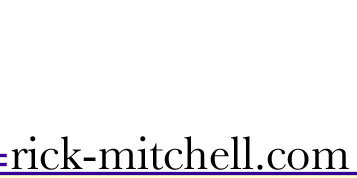Report: Half of Belgian Population Exceeds EC’s Dioxin Intake Standard
By Rick Mitchell
Half the population of Belgium consumes dioxins and dioxin-like PCBs at levels that exceed European Commission safety standards, according to an October advisory report.
The report, by the scientific committee attached to Belgium’s food safety agency, analyzes high dioxin levels found in eggs from chickens raised on private farms. The committee calculated that some 70% of people who eat such eggs exceed the EC’s dioxin safety standard, known as the tolerable daily intake, or TDI.
The food safety agency – which goes by its French acronym, AFSCA – furnished data to the scientific committee and asked it to assess the health implications. The committee calculated that, factoring in only the eggs’ input, dioxin exposure was seven times higher for people who eat eggs from private farms than for people who eat eggs raised on industrial operations. It said the disparity held whether the chickens were raised in closed-type coops or free ranges, in organic or conventional production.
Dioxins are colorless, odorless compounds of carbon, hydrogen, oxygen and chlorine. Of the 210 known congeners, 17 are toxic. In addition, 12 polychlorinated biphenyls with characteristics similar to dioxins -- thus dioxin-like PCBs --are toxic. In the 1980s, the WHO and the US Environmental Protection Agency developed a way to measure dioxin toxicity against the most poisonous form – 2,3,7,8-tetrachlordibezno-p-dioxin (TCDD). TCDD is 1 on the scale, and other dioxins’ toxic equivalence (TEQ) is measured in parts per trillion (ppt).
In 2001, the EC’s Scientific Committee on Food (SCF) established a tolerable weekly intake (TWI) at 14 picograms (pg, for one trillionth of a gram) TEQ/kg of body weight/day for dioxins and dioxin-like PCBs. This corresponds to a TDI of 2pg TEQ/kg of body weight/day. The SCF determined that a considerable part of the European population exceeded the TWI. However it added that this did not necessarily constitute great risk to human health.
Calculating based on all of a day’s food intake, not just eggs, and allowing for Belgians’ wide variety of eating habits, the committee determined that an average person who eats privately raised eggs would absorb about 0.40pg TEQ/kg of body weight/day of dioxin from the eggs, pushing total exposure up about 30%. For a person who eats industrially raised eggs, the exposure comes to 0.11pg TEQ/kg of body weight/day, raising exposure about 10%.
The committee cautioned that the data it had to work with was insufficient, with many key gaps preventing it from making more comprehensive conclusions. For example, soil samples rarely came from within the actual enclosures the chickens were raised in, and data only came from one part of Belgium.
Dioxins as well as dioxin-like PCBs in the soil concentrate in eggs via what the chicken eats, such as earthworms. However, little is known about the process by which the chemical enters the eggs, the committee said. One possible explanation for the higher rates is that the private farms studied tended to be closer to dense population areas and industrial zones than the industrial farms were.
Although dioxins occur naturally, human activity involving combustion -- such as waste incineration and industrial processes -- can increase environmental levels. Thus, the burning of wood and waste on private farms in the gardens where chickens feed may have contributed.
Dioxins are fat-soluble carcinogens, linked to many other serious illnesses besides cancer. It is thought that ninety-five percent of human exposure comes through the diet. Since we can’t digest them, they bio-accumulate in adipose tissue over a lifetime -- the so-called “body burden.” That’s what we have to watch out for, the experts say.
Fatty fish potentially carries the highest dioxin load, followed by fat-rich dairy products, with eggs next. The privately cultivated eggs in the study approached the dioxin levels of fatty fish from polluted waters, the report said. Vegetables pose no risks if thoroughly washed. In other words, a balanced, low-fat meal remains the best course of action.
The AFSCA was born out of the political ashes of Belgium’s 1999 dioxin debacle. For months Prime Minister Jean-Luc Dehaene’s government kept the dirty secret that PCB- and dioxin-laced motor oil had found its way into batches of chicken feed, contaminating poultry, eggs and dairy products. When it came out, nations around the world banned Belgian food exports, and the government toppled soon after.

